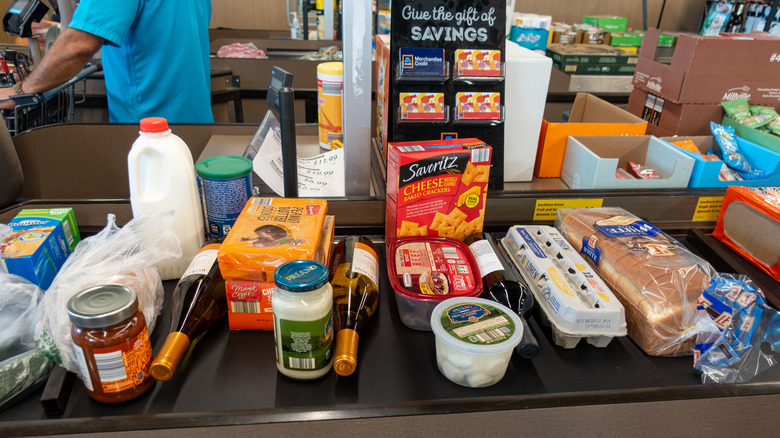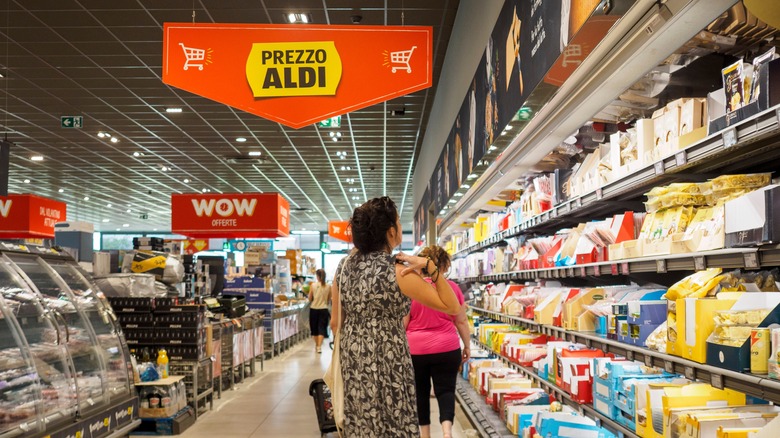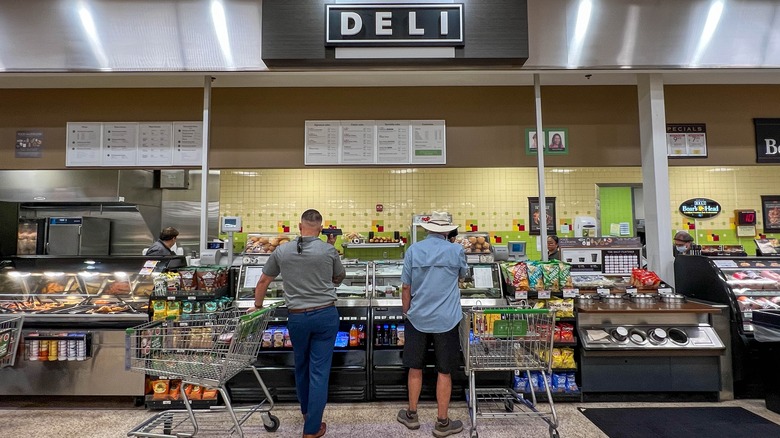Aldi Vs Publix: Which Grocery Store Is More Affordable?
Although an ordinary weekday chore, filling up a cart of groceries can be a surprisingly stressful experience. After all, whenever a budget is involved, deciding not only what to buy but also where to shop can feel daunting. To complicate matters further, the number of retail options is overwhelming.
For instance, if you're in one of eight Southern states in the U.S., a dependably friendly option is Publix, the grocery store chain known for its made-to-order subs. Yet elsewhere in the area, there is likely an Aldi as well — the retailer has over 2,500 locations nationwide. So before plugging either store into your GPS, you may wonder: Which one is the more affordable option?
Well, let's cut to the chase: Aldi delivers better prices for most staple items. The chain keeps costs low through streamlined product distribution and a no-frills shopping experience. Aldi ranks among the most affordable grocery stores in the United States. Meanwhile, Publix doesn't prioritize cost in the same way; it positions itself as more upscale. At Publix, you can expect excellent customer service (and even background music!), along with a wider variety of products. The store also offers some terrific sales, keeping some categories competitive with Aldi.
Aldi offers dependably low prices
It's no secret that Aldi, which is even cheaper than Walmart in most cases, beats many retailers on pricing. And compared to Publix, the cost advantage holds true. While an occasional item — say, ground beef — might be cheaper at Publix, Aldi consistently wins across all major categories.
Sure, Aldi's selection is more limited, but if you're loading up a basic grocery cart, you'll save money. And while its plain store design may feel dull, Aldi's strengths are worth noting. The retailer offers some fantastic cheeses, snacks, and affordably priced wine and beer — not just kitchen staples. To make the most of shopping there, consider going on Wednesdays, when fresh produce arrives alongside weekly sales.
While both retailers have private-label offerings (Publix even has three!), Aldi's reliance on them is especially high. These include everything from flour to its well-reviewed line of organic products — meaning you don't need to head to Publix for natural goods. Savings stack up further on produce, milk, and poultry. Aldi may not have an in-house bakery, but it still covers nearly every daily grocery need.
Publix shines in a few departments
Fill a cart at Publix, and the bill will climb noticeably higher than Aldi's. The grocer has faced criticism for steep prices, with some items costing far more than at competitors. That said, certain departments — especially meat and dairy — often provide higher quality. And with friendly service and a decorated environment, the overall shopping experience is arguably more pleasant than Aldi's utilitarian layout.
While Aldi's use of private labels may contribute to its pricing advantage, some consumers prefer the familiarity of recognizable brands. This is where Publix shines, as its sales often deliver better prices on well-known products than Aldi's private-label competitors. Furthermore, Publix is also famous for its buy one, get one free promotions, which often kick off on Wednesdays and Thursdays. When combined with the Club Publix app, these deals make generous savings possible on your favorite items.
Publix also triumphs over Aldi in the prepared foods category. The retailer shines with its ready-to-eat grocery items, including delicious fried chicken, in-store sushi, rotisserie chicken, freshly baked goods, and its fan-favorite deli-created sub sandwiches. While Aldi has some well-reviewed pre-packaged meals for microwaving or baking, it lacks the variety of hot, freshly prepared options. Therefore, if you're seeking a more convenient and comprehensive shopping experience, Publix might be worth the extra price.



